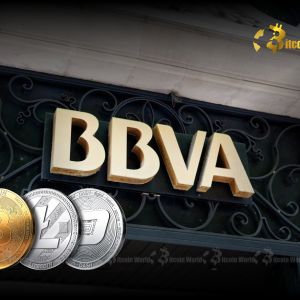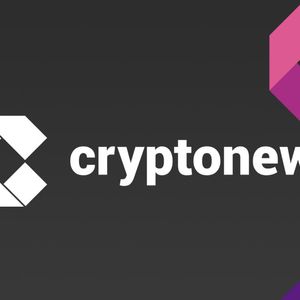BitcoinWorld BBVA Crypto: Spain’s Banking Giant Revolutionizes Retail Access to Bitcoin and Ethereum The financial world is constantly evolving, and a major shift is underway as traditional banking giants embrace the digital asset revolution. In a significant move that signals a growing acceptance of cryptocurrencies, Spanish banking powerhouse BBVA has officially opened its doors to the world of digital assets for its retail customers in Spain. This isn’t just another small step; it’s a bold leap, making it easier than ever for everyday individuals to engage with cryptocurrencies directly through their trusted bank. BBVA Crypto: Unlocking Digital Assets for Everyone BBVA, one of Europe’s largest financial institutions, has announced the launch of Bitcoin (BTC) and Ethereum (ETH) trading and custody services directly within its mobile banking application for retail customers in Spain. This strategic integration means that users no longer need to navigate complex external crypto exchanges. Instead, they can seamlessly buy, sell, and hold their digital assets right alongside their traditional banking products. The key differentiator here is BBVA’s commitment to self-custody, ensuring that the service is fully integrated within their digital banking platform and independent of third-party custodians. This approach aims to provide a higher level of security and convenience, leveraging the bank’s robust infrastructure and regulatory compliance. The BBVA crypto initiative underscores a pivotal moment for mainstream cryptocurrency adoption, bridging the gap between traditional finance and the decentralized digital economy. The Bitcoin Spain Revolution: What This Means for BTC Holders For years, acquiring Bitcoin in Spain often involved using specialized crypto platforms, which, while effective, sometimes presented a steeper learning curve for new users. BBVA’s new offering dramatically simplifies this process. Retail customers can now access Bitcoin (BTC) directly through an interface they already know and trust – their banking app. This move by a major institution like BBVA lends significant legitimacy to Bitcoin as an asset class, potentially encouraging a broader demographic of investors who might have previously been hesitant due to perceived complexities or security concerns. The ease of access provided by BBVA could significantly boost the number of Bitcoin holders in Spain, contributing to greater liquidity and mainstream acceptance of the world’s leading cryptocurrency. This development truly marks a new chapter for Bitcoin Spain , making it more accessible than ever before. Ethereum Spain: Empowering the Smart Contract Ecosystem Beyond Bitcoin, BBVA’s inclusion of Ethereum (ETH) is equally impactful. Ethereum, the backbone of decentralized finance (DeFi), NFTs, and countless decentralized applications (dApps), represents a different facet of the crypto world. By offering ETH trading and custody, BBVA is not just providing access to a digital currency; it’s indirectly opening a gateway to the broader Web3 ecosystem for its Spanish clientele. This is particularly significant as the Ethereum network continues to evolve, with ongoing upgrades like the upcoming “Dencun” upgrade aiming to enhance scalability and efficiency. The ability for retail customers to easily acquire and hold Ethereum through a regulated banking channel could spur greater participation in the burgeoning DeFi space and foster innovation within the Ethereum Spain community. It signals a recognition of Ethereum’s foundational role in the future of digital finance. Crypto Banking Spain: A New Era of Financial Integration BBVA’s foray into crypto services for retail customers in Spain is part of a larger global trend where traditional financial institutions are increasingly exploring and adopting digital assets. This shift is driven by growing client demand, the potential for new revenue streams, and the recognition of blockchain technology’s transformative power. For crypto banking Spain , this move by BBVA sets a precedent. While some banks have launched similar services for institutional clients, offering it directly to retail customers via a mobile app is a significant step towards mainstream integration. This development highlights a strategic pivot for banks, moving from a cautious, wait-and-see approach to actively participating in the digital asset market. It also poses questions about how other Spanish banks will respond, potentially leading to a competitive landscape that benefits consumers with more choices and innovative services. The integration of crypto within traditional banking frameworks aims to provide the best of both worlds: the innovation and potential of digital assets combined with the security and regulatory compliance of established financial institutions. Why Retail Crypto Trading Through Banks? Unpacking the Benefits and Challenges The decision by BBVA to offer retail crypto trading services directly through its banking app comes with a host of advantages for the everyday user, but also presents unique challenges that both the bank and its customers must navigate. Understanding these aspects is crucial for anyone considering entering the digital asset space via traditional financial institutions. Key Benefits for Customers: Simplified Access: For many, the traditional banking app is a familiar and trusted interface. Integrating crypto services here significantly lowers the barrier to entry, making it easier for new investors to buy, sell, and hold digital assets without needing to learn a new platform. Enhanced Security & Trust: Banks operate under stringent regulatory frameworks, offering robust cybersecurity measures, internal controls, and often deposit protection for traditional funds. This provides a layer of trust and perceived security that many independent crypto exchanges may not offer, reducing concerns about hacks or fraud. Convenience & Integration: Users can manage their traditional bank accounts and digital asset portfolios from a single, unified interface. This streamlines financial management, making it more convenient to monitor investments and move funds between fiat and crypto. Regulatory Compliance: Trading through a regulated bank means that transactions adhere to strict Anti-Money Laundering (AML) and Know Your Customer (KYC) protocols, providing a clearer, more legitimate pathway for crypto engagement within the established financial system. Potential Challenges and Considerations: Limited Asset Selection: Banks often start with a limited selection of highly liquid and well-established cryptocurrencies like Bitcoin and Ethereum. This might not satisfy investors looking for exposure to a wider range of altcoins or emerging projects. Custody vs. Control: While banks offer custody, users might not have direct control over their private keys, which is a core tenet of the decentralized crypto ethos (“not your keys, not your crypto”). This means relying on the bank for asset security rather than self-custody. Fees and Pricing: Transaction fees and pricing models might differ from dedicated crypto exchanges. Users should carefully review these structures to ensure competitive rates. Regulatory Uncertainty: Despite steps towards clarity, the global regulatory landscape for cryptocurrencies is still evolving. Banks must continuously adapt to new rules, which can impact service offerings. User Education: While access is simplified, understanding the inherent volatility, market risks, and technological nuances of cryptocurrencies remains vital. Banks have a responsibility to provide comprehensive educational resources. Navigating these benefits and challenges will be key for both BBVA and its customers as they embark on this new financial journey, shaping the future of integrated financial services. The Road Ahead: What’s Next for Digital Assets in Banking? BBVA’s pioneering step in Spain could serve as a blueprint for other European and global banks. As demand for digital assets continues to grow, more financial institutions are likely to follow suit, offering integrated crypto services. We might see an expansion of supported cryptocurrencies, the introduction of crypto-backed lending, or even seamless integration with decentralized finance (DeFi) protocols, all within the familiar and secure environment of a banking app. The future of finance appears to be a hybrid model, where traditional banking infrastructure coexists and increasingly merges with the innovative capabilities of blockchain and digital assets. Conclusion: A Watershed Moment for Mainstream Crypto Adoption BBVA’s launch of Bitcoin and Ethereum trading and custody services for retail customers in Spain is more than just a new product offering; it’s a significant milestone in the journey towards mainstream cryptocurrency adoption. By bringing digital assets into the secure and regulated environment of traditional banking, BBVA is not only meeting growing consumer demand but also building trust and legitimacy for the entire crypto ecosystem. This move demystifies crypto, making it accessible to millions who might otherwise have remained on the sidelines. It heralds a new era where digital assets are no longer niche investments but an integrated part of everyday financial life, truly transforming how individuals interact with their money and the broader digital economy. This is a game-changer, setting a powerful precedent for the future of finance. To learn more about the latest crypto market trends, explore our article on key developments shaping Bitcoin and Ethereum institutional adoption. This post BBVA Crypto: Spain’s Banking Giant Revolutionizes Retail Access to Bitcoin and Ethereum first appeared on BitcoinWorld and is written by Editorial Team


















